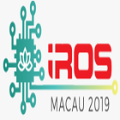The Fourth International Workshop on Domain-Specific Languages and Models for Robotic Systems (DSLRob'13) was held in conjunction with the 2013 IEEE/RSJ International Conference on Intelligent Robots and Systems (IROS 2013), November 2013 in Tokyo, Japan. The main topics of the workshop were Domain-Specific Languages (DSLs) and Model-driven Software Development (MDSD) for robotics. A domain-specific language is a programming language dedicated to a particular problem domain that offers specific notations and abstractions that increase programmer productivity within that domain. Model-driven software development offers a high-level way for domain users to specify the functionality of their system at the right level of abstraction. DSLs and models have historically been used for programming complex systems. However recently they have garnered interest as a separate field of study. Robotic systems blend hardware and software in a holistic way that intrinsically raises many crosscutting concerns (concurrency, uncertainty, time constraints, ...), for which reason, traditional general-purpose languages often lead to a poor fit between the language features and the implementation requirements. DSLs and models offer a powerful, systematic way to overcome this problem, enabling the programmer to quickly and precisely implement novel software solutions to complex problems within the robotics domain.
翻译:第四次机器人系统具体语言和模型国际讲习班(DSLROB'13)是与2013年11月在日本东京举行的2013年IEEE/RSJ智能机器人和系统国际会议(IROS,2013年)同时举行的,讲习班的主要议题是机器人特定语言(DSLs)和模型驱动软件开发(MDSD),一个具体领域的语言是针对一个特定问题领域的方案编制语言,该语言提供了具体的批注和抽象信息,提高了该领域的程序员生产率。模式驱动软件开发为域用户提供了一个高层次的方法,以在正确的抽象层面具体说明其系统功能。DSLS和模型历来用于复杂的系统编程,但最近作为一个单独的研究领域,它们引起了兴趣。机器人系统将硬件和软件综合在一起,必然引起许多交叉问题(货币、不确定性、时间限制、.),因此,传统通用语言往往导致语言特征与执行要求之间不匹配。DSLSL和模型为迅速解决这一复杂领域问题提供了一种强有力的系统办法,使机器人方案得以迅速解决。




